Yes, Virginia, there really is a right way to hold a chicken. Is it always necessary to hold a chicken correctly? No, but every chicken keeper should be aware of the proper method and use it during exams and bathing. Not only can handling a bird improperly stress the chicken unnecessarily, it can endanger their lives by restricting their ability to inflate their air sacs to breathe. Holding a chicken correctly allows you to examine a chicken easily, keeps them calm and securely supported by their keel, (breast bone) and has the added benefit of keeping the working end of the bird away from you, greatly reducing the chance of getting pooped on. You’re welcome!
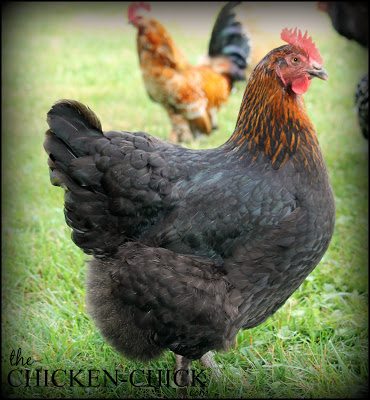
(Black Copper Marans hen)
Most chickens don’t care to be handled, so whenever possible, I recommend handling and examining chickens after dark when they’re half asleep on the roost and unable to see well enough to put up much of a fuss. Wear a headlamp or have a partner holding a flashlight for you while you work.
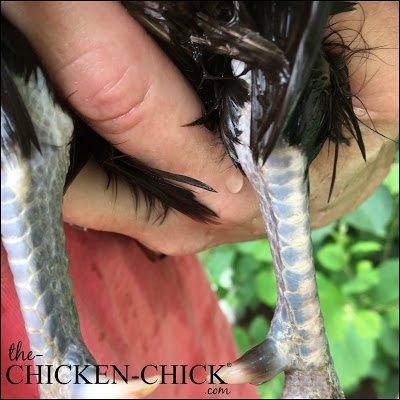
So, here’s how it’s done…with the chicken’s beak facing you and your palm facing up with fingers spread apart, slide your index finger between the legs. Allow the keel bone to rest on your palm and forearm. Wrap your pinky, ring finger and middle finger around one thigh while the thumb holds the other thigh. Ta-da! You’re doing it and the bird can still breathe freely!
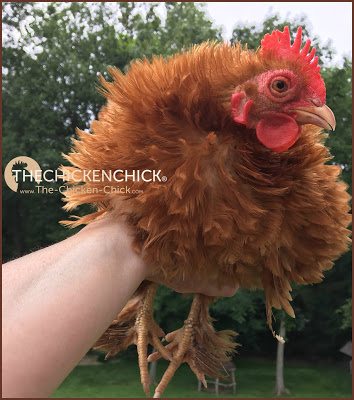
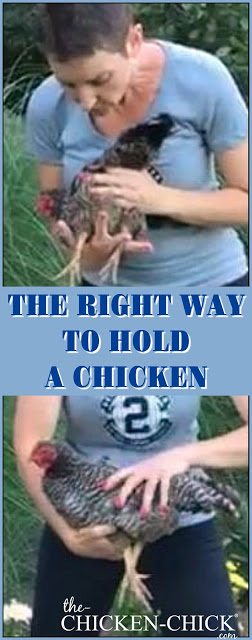
Always supervise children handling chicks. They should be instructed to support the chick in one hand underneath the feet and one hand gently securing the wings, and never squeeze. Small children really shouldn’t attempt to hold large fowl breeds; often they try to hold the chicken by hugging them, which squeezes the bird’s air sacs, preventing the bird from inflating them to breathe.
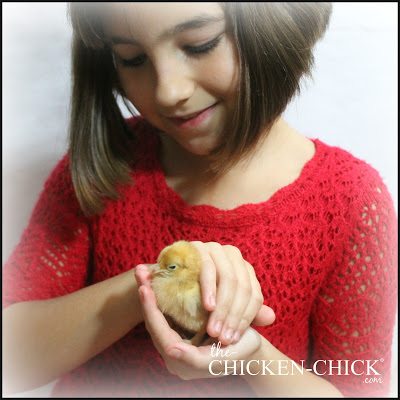
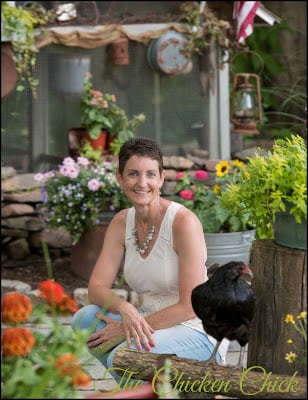
Kathy Shea Mormino
Affectionately known internationally as The Chicken Chick®, Kathy Shea Mormino shares a fun-loving, informative style to raising backyard chickens. …Read on


shop my SPONSORS
Yes, Virginia, there really is a right way to hold a chicken. Is it always necessary to hold a chicken correctly? No, but every chicken keeper should be aware of the proper method and use it during exams and bathing. Not only can handling a bird improperly stress the chicken unnecessarily, it can endanger their lives by restricting their ability to inflate their air sacs to breathe. Holding a chicken correctly allows you to examine a chicken easily, keeps them calm and securely supported by their keel, (breast bone) and has the added benefit of keeping the working end of the bird away from you, greatly reducing the chance of getting pooped on. You’re welcome!

(Black Copper Marans hen)
Most chickens don’t care to be handled, so whenever possible, I recommend handling and examining chickens after dark when they’re half asleep on the roost and unable to see well enough to put up much of a fuss. Wear a headlamp or have a partner holding a flashlight for you while you work.

So, here’s how it’s done…with the chicken’s beak facing you and your palm facing up with fingers spread apart, slide your index finger between the legs. Allow the keel bone to rest on your palm and forearm. Wrap your pinky, ring finger and middle finger around one thigh while the thumb holds the other thigh. Ta-da! You’re doing it and the bird can still breathe freely!


Always supervise children handling chicks. They should be instructed to support the chick in one hand underneath the feet and one hand gently securing the wings, and never squeeze. Small children really shouldn’t attempt to hold large fowl breeds; often they try to hold the chicken by hugging them, which squeezes the bird’s air sacs, preventing the bird from inflating them to breathe.





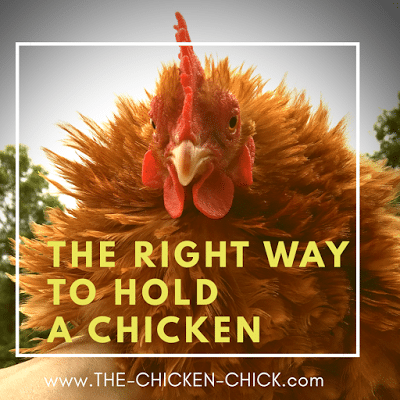













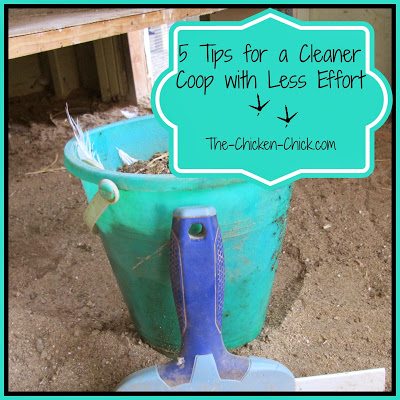
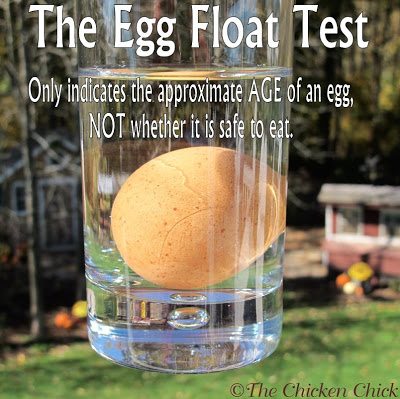










I would love to win this Hen Pen because I do need a way to separate and move my chickens around. I am also trying to figure how I want to make a space for some mommy hens and baby chicks that I might have soon.
Great website here. For all to enjoy and learn.
This looks like a great play pen for the chickies that haven’t joined the big kids yet. Thank you for blog articles that have been a go to for reliable chicken information over the past several years that I’ve been lucky enough to spend with chickens!
Great giveaway!!!
Interesting article, I did not know that chickens had air sacs. Thanks for the information that you provide.